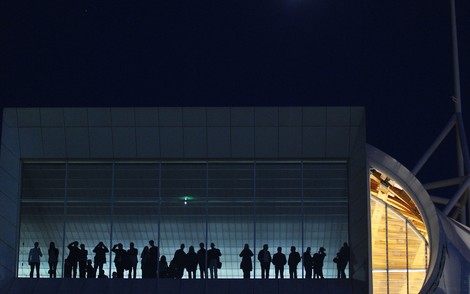Your podcast discovery platform
Curious minds select the most fascinating podcasts from around the world. Discover hand-piqd audio recommendations on your favorite topics.

piqer for: Global finds Technology and society
Roshawn Terrell is a machine learning and AI researcher for Ethicsnet.com. He studies neuroscience, cognitive science, and artificial intelligence. He is a guest-lecturer at Oxford, where he will be leading a research team to look into applying his and colleague's findings to building more sophisticated artificial intelligence.
The Blind Spot
Many of us like to think that science can give us a complete, objective description of cosmic history, distinct from us and our perception of it. But this image of science is deeply flawed. In our urge for knowledge and control, we’ve created a vision of science as a series of discoveries about how reality is, in itself, a God’s-eye view of nature. Such an approach not only distorts the truth, but creates a false sense of distance between ourselves and the world. That divide arises from what we call the Blind Spot, which science itself cannot see.
Listen to Adam Frank, an astrophysicist, Marcelo Gleiser, a theoretical physicist, and Evan Thompson, a professor of philosophy, discuss one the current main problems in science, which is that modern science and scientists tend to neglect the nature experience—what it is, and why it exists at all.
Many scientists and people who value science like to view it as something that can give a complete answer. Likely for the same reason that religious people turn to religion, because it gives them safety in their beliefs.
The current scientific view likes to think that everything can be reduced to its constitute parts, and in that you'll have the answer to your questions. But the reality of the situation is far more mysterious, and it can be said that scientists who hold this reductionist view are actually doing a dis-justice to science, which is the pursuit of truth.
Stay up to date – with a newsletter from your channel on Technology and society.
